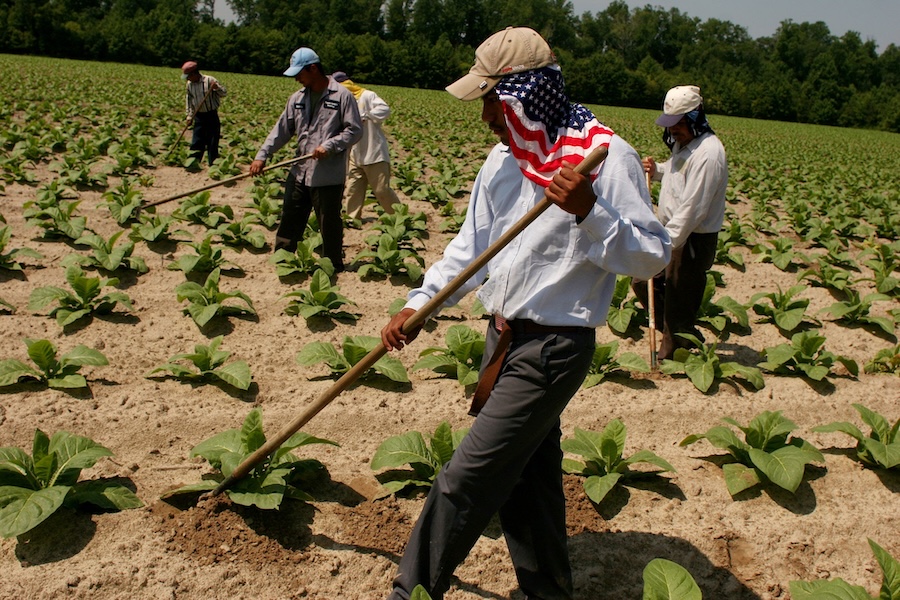The United Kingdom, a global hub of culture, education, and opportunity, has long attracted immigrants from across the world. In 2025, however, the UK’s immigration landscape is undergoing significant changes, with tighter visa regulations, stricter enforcement, and new challenges for those seeking to build a life in the country. From international students facing visa expiration deadlines to skilled workers navigating a points-based system, immigrants must adapt to evolving policies while embracing cultural shifts. This article explores the UK’s immigration framework, visa processes, personal stories of triumph and struggle, and practical advice for cultural integration, offering a comprehensive guide for newcomers.
UK Immigration Policies in 2025: A Shifting Landscape
The UK’s immigration system has seen transformative reforms in 2025, driven by the Labour government’s pledge to reduce net migration. Following Brexit, the end of free movement for EU nationals and the introduction of a points-based immigration system have reshaped how people enter and stay in the country. In May 2025, the government released a white paper titled Restoring Control Over the Immigration System, outlining eight key proposals to tighten migration pathways. These include shortening the list of jobs eligible for Skilled Worker visas, ending exemptions for social care workers, and extending the qualifying period for Indefinite Leave to Remain (ILR) from 5 to 10 years for most routes. These changes aim to prioritize domestic workers while maintaining pathways for high-skilled talent.
(Net migration to the UK reached 685,000 in 2024, down from a peak of 764,000 in 2022, but public and political pressure continues to drive stricter policies. The government has also introduced facial recognition at borders and stricter asylum claim scrutiny, impacting students and workers alike. For instance, international students now face a reduced Graduate Route visa duration, cut from 24 to 18 months, limiting their post-study work opportunities. These reforms signal a tougher road ahead for immigrants, particularly those without specialized skills or significant cultural contributions.
(“The UK remains open to global talent, but we must balance economic needs with public services,” said Home Secretary Yvette Cooper in a recent address. “Our policies ensure fairness while attracting those who enrich our society.”
Visa Processes: Pathways and Pitfalls
Navigating the UK’s visa system requires careful planning and attention to detail. The most common visa categories include the Skilled Worker Visa, Student Visa, Global Talent Visa, and Family Visa. Each has specific eligibility criteria, costs, and processing times, with recent changes adding complexity. For example, the Skilled Worker Visa now excludes medium-skilled jobs (RQF levels 3–5) unless exempted by the Migration Advisory Committee, impacting sectors like hospitality and retail. Applicants need a job offer from an approved sponsor and must meet a minimum salary threshold, which varies but typically starts at £38,700 for most roles.
(International students, a cornerstone of the UK’s academic landscape, face new hurdles. To apply for a Student Visa, applicants must be 16 or older, have a place at a licensed institution, prove financial stability, and demonstrate English proficiency at a B2 level (up from B1 in some cases). The visa costs around £490 for applications from outside the UK, with processing times averaging 3 weeks (outside) or 8 weeks (inside). Students must apply no earlier than 6 months before their course starts and ensure their new course begins within 28 days of their current visa expiring. Failure to leave before visa expiration can lead to detention or bans, as the Home Office has warned.
(Practical tip: Always prepare documents like bank statements, course acceptance letters, and English test results (e.g., IELTS or TOEFL) in advance. Use certified translators for non-English documents and double-check sponsor licenses via the UK government’s online register. Consulting an immigration lawyer can prevent rejections, especially for complex cases like asylum or family reunification.
Challenges of Immigration: From Policy to Practice
Immigrants face a range of challenges, from navigating bureaucratic hurdles to overcoming social isolation. The UK’s tightened policies have particularly impacted international students, who contributed £11.8 billion in tuition fees in 2021/22 but now face stricter sponsorship rules and a potential university levy on international student income. The Graduate Route visa reduction to 18 months has raised concerns about declining enrollment, as students worry about limited time to secure jobs post-study. Brexit’s legacy also lingers, with EU students now requiring visas and facing higher costs, leading to a 5% drop in EU student applications since 2020.
(Beyond policy, cultural and emotional challenges abound. Many immigrants report feeling overwhelmed by the UK’s fast-paced urban life, especially in cities like London. Language barriers, despite stricter English requirements, remain a hurdle for some, particularly in informal settings. Racism and xenophobia, though not universal, can create feelings of alienation, with 1 in 3 immigrants reporting discrimination in a 2024 survey by the Migration Observatory.
“I arrived in Manchester expecting opportunity, but the accent was tough, and I felt like an outsider at first,” says Aisha, a 24-year-old Nigerian student. “Joining a local community group helped me find my place.”
Practical tip: To overcome challenges, connect with local support networks like the UK Council for International Student Affairs (UKCISA) or community centers. Budgeting for high living costs—London rents average £2,000/month for a one-bedroom flat—is critical. Apps like Meetup can help find social groups, while free NHS mental health services offer support for emotional struggles.
Success Stories: Resilience and Achievement
Despite challenges, many immigrants thrive in the UK, enriching its cultural and economic fabric. Take the story of Priya, a 29-year-old Indian software engineer who arrived on a Skilled Worker Visa in 2023. After navigating a competitive job market, she secured a role at a London tech firm, leveraging her coding skills and cultural fluency in cross-team projects. “My background in Indian classical dance became a bridge,” she shares. “I performed at a company event, and it opened conversations with colleagues.” Priya’s story highlights how cultural contributions can enhance visa applications and workplace integration.
(Similarly, Ahmed, a Syrian refugee granted asylum in 2021, built a catering business in Birmingham, blending Middle Eastern flavors with British classics. His food truck, Syrian Sizzler, now employs three locals and caters community events. “The UK gave me a second chance,” he says. “I had to learn the regulations, but the support from local business hubs was incredible.” Ahmed’s success underscores the value of community engagement, which can also strengthen visa applications under categories like the Global Talent Visa, which prioritizes cultural and academic contributions.
(Practical tip: Document cultural contributions—artistic projects, community volunteering, or academic publications—to bolster visa applications. For entrepreneurs like Ahmed, the Innovator Founder Visa, revised in 2025 to support student entrepreneurs, offers a pathway. Seek mentorship from organizations like the Federation of Small Businesses to navigate startup regulations.
Cultural Integration: Building a New Home
Adapting to UK culture is a critical step for immigrants, blending respect for local norms with pride in one’s heritage. The UK’s multicultural society, with 14% of the population born abroad, offers a vibrant backdrop but requires effort to navigate. Understanding British customs—like queuing etiquette or indirect communication—can ease daily interactions. Timekeeping is non-negotiable; arriving late to appointments can harm professional or academic credibility.
International students, in particular, face unique cultural challenges. Academic expectations, such as independent research and critical thinking, differ from systems in countries like China or India. “I was shocked by how much professors expected me to challenge ideas,” says Li, a Chinese postgraduate in Edinburgh. “It took months to feel confident speaking up.” Joining university societies or attending cultural festivals, like London’s Notting Hill Carnival, can help students build connections.
(Practical tip: Take advantage of free resources like the British Council’s language courses or university workshops on academic skills. Engage with local traditions—try a Sunday roast or attend a Premier League match—to feel more connected. Maintain your cultural identity by hosting events, like cooking traditional meals for friends, to foster mutual understanding.
Legal Guidance: Staying Compliant
Compliance with UK immigration laws is paramount, as violations can lead to severe consequences, including deportation or bans of up to 10 years. The Home Office has intensified enforcement, with 15,000 deportations in 2024, up from 12,000 in 2023. International students, in particular, must leave before their visa expires unless they secure another visa, such as the Graduate Route or Skilled Worker Visa. Overstaying is not tolerated, and the government’s recent warning to foreign students underscores this stance.
Asylum seekers face stricter scrutiny, with 70% of claims rejected in 2024. Legal aid, though limited, is available through organizations like Refugee Action. For work visa holders, maintaining employment with a licensed sponsor is crucial, as job loss can invalidate status within 60 days. Regularly check visa conditions via the Home Office’s online portal to avoid unintentional breaches.
(“The system is tough, but preparation is key,” says immigration lawyer Sarah Patel. “Always keep records of your visa status, employment, and course progress to avoid complications.”
Practical tip: Use apps like VisaChecker to track expiration dates and set reminders. For legal support, contact organizations like the Immigration Law Practitioners’ Association (ILPA). If facing deportation, seek immediate advice from a solicitor, as appeals can sometimes overturn decisions within 28 days.
Conclusion: A Journey of Adaptation and Opportunity
The UK’s immigration landscape in 2025 is a complex tapestry of opportunity and challenge. While stricter policies and visa restrictions create hurdles, the country remains a beacon for those with skills, determination, and cultural contributions. From students building academic careers to refugees launching businesses, immigrants continue to shape the UK’s diverse identity. By understanding visa processes, embracing cultural adaptation, and seeking support, newcomers can navigate this evolving system and build fulfilling lives. The journey is tough but rewarding, as countless stories of resilience prove.


















0 Comments